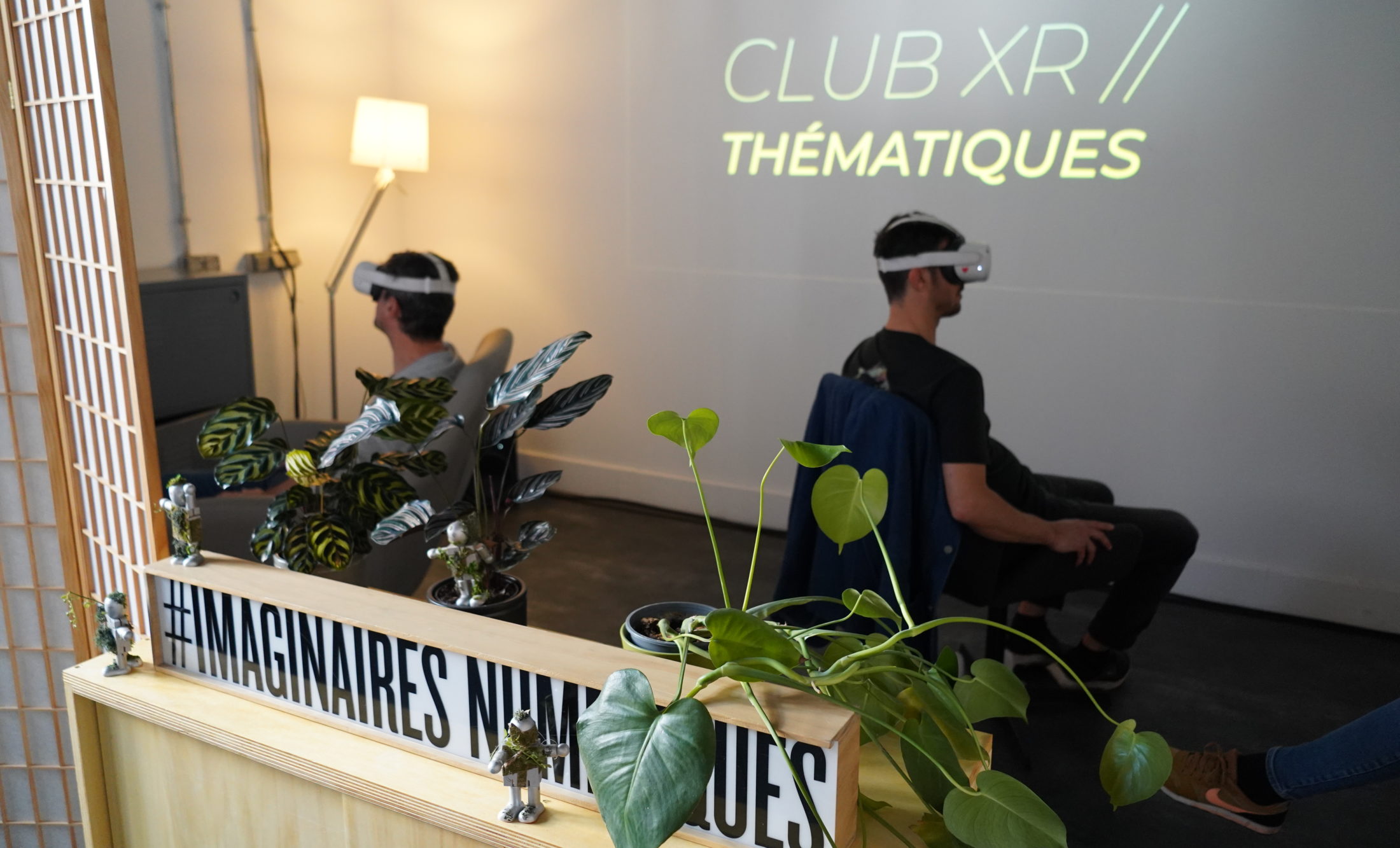Visits & Workshops
CHRONIQUES offers a wide range of cultural activities linked to the artistic program. These activities take place all year round at MEDIALAB at Marseille’s Friche Belle de Mai, as well as in schools and partner organizations.
The MEDIALAB
MEDIALAB is a free space open to all, dedicated to the discovery of today’s digital arts, cultures and practices. It is located at the Friche la Belle de Mai in Marseille.
As a co-working space, you can not only work here, but also discover, experiment, learn and take part in digital creativity workshops. It’s also where Club XR meets!
Free entrie
Every Wednesday and Saturday (except during school vacations), discover all MEDIALAB’s resources accompanied by a mediator.
You can experiment with 3D printing, virtual and augmented reality, animated cinema and much more, on your own and without a reservation!
Workshops
Are you interested in digital arts and culture? Would you like to find out more about augmented reality, video creation, electronics, video game creation, digital manufacturing…?
Just the thing! Throughout the year, CHRONIQUES offers a regular program of digital creation workshops.
Tailor-made tours
In addition to our own cultural programming, we also work with a wide range of partner organizations, libraries, social organizations and schools of all levels, notably as part of artistic and cultural education programs.
In this way, we support the region in the specific challenges of cultural mediation in the field of digital arts.
Further information
> Digital creativity catalog :
> Our educational resources website :
Dedicated to teachers of all levels, Repères Numériques is a resource platform devoted to the digital arts. For the time being, CHRONIQUES’s activities are our only source of inspiration, but from 2024 we hope to welcome other partners, notably as part of the Réseau national des arts hybrides et cultures numériques (HACNUM).
Calendar of events :
June 2025 |
||||||
|---|---|---|---|---|---|---|
| Mon | Tue | Wed | Thu | Fri | Sat | Sun |
|
1
|
||||||
|
2
|
3
|
4
|
5
|
6
|
7
|
8
|
|
9
|
10
|
11
|
12
|
13
|
14
|
15
|
|
16
|
17
|
18
|
19
|
20
|
21
|
22
|
|
23
|
24
|
25
|
26
|
27
|
28
|
29
|
|
30
|
||||||





